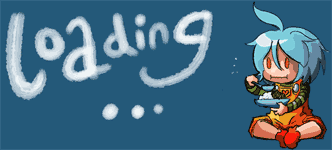http://astronerdboy.blogspot.com/2012/03/new-proposed-japanese-law-reason-ken.html
Well, that explains that. People had speculated that his digital j-comi line might have had something to do with it, and it does. Sort of.
Basically, Negima ended due to argument over the future copyright.
right now the biggest thing that occupied most of Ken's time (at least on twitter) is his fight against publishers, which including Kodansha, in trying to impose a new law by creating "neighboring copyright", for people who are not creator but has a hand in "helping" the creation of the work gets automatic right, meaning editors, researchers, printers, etc. or plain speaking, a power grab by the publishers to take right away from the author, this is something VERY SERIOUS and has long unforeseen consequences if pass through, (the publisher can and will go after second hand creation/dojin without need to ask the permission of the author, etc. (it was one of the state benefits of this law) meaning the end of dojinshi as we know it., or after a serial is over the author can not retain exclusive right to it while the publisher can hold onto to it forever to keep making money for itself, etc.) and Japanese works readers (be it novel or manga) need to pay attention to this development just like the Tokyo Child Protection law,
[sic] there were two Kodansha editors for the showdown debate with Ken in "explaining" the neighboring copyright law, Ken brought George Morikawa, the author of Hajime no Ippo with him in case he needs some muscle backup. one of the editor were together with Ken in opposing the Tokyo Child Protection Law.
Kodansha's position:
publisher will share "equal" copyright with author. because it helps the mangaka to promo, typeset, proofread, research, edit, and printing the manga, and by having the right automatically, the publisher can:
1. when there is going to be an e-book release of the same paper product, no longer need a second negotiation one by one again for the right, which can speed things up.
2. the publisher can go after pirate and 2nd creation violator without spend time consulting the author in the first place, again speed things up.
Ken's reply for #1 is the current contract model works fast enough, no need to give publisher extra right, for #2 all it takes is a phone call between publisher and author.
and the danger for #2 of course is all dojinsh and all 2nd hand creation will cease to exist, Kodansha did say clearly, that it is their goal with this law to go after places like PIXIV and Toranoana, (basically, like how Disney operates.) but what happen as in the case of Ken, who gives his approval and don't want them to be sued?
Ken's position:
1. what happen if the publisher went under, and the right falls into some strange debtor?
2. if an old manga is to be republished (paper or e-book) on another publisher than the original one, what would happen if there is interference from the old publisher?
(Kodansha guarantees this won't happen, but of course Kodansha cannot promise the same for all the other publishers, this is quite important for Ken when you consider the nature of J-Comi.)
3. even with this law, there is no way to stop the pirating.
4. too many people who own the same right will only complicate things
Kodansha's reply: they can't answer Ken's questions, they admit, while this law would be convenient for the publisher, they can't find a reasonable argument to convince all authors,
the truth is, the original proposal is not from the manga industry, but pushed by the literature fiction sector to Japanese culture ministry, or course then you have unforeseen problem developed across the board, Ken's argument is this law's benefits can be achieved with current model, and to give the publisher the extra right is too dangerous.
I happen to agree with Ken on this. Japanese (or substitute any other nations under the sun) government officials and legislators are a bunch of idiots.
Explains Claymore as well.
Okay Akamatsu, I guess you can be forgiven. As long as you actually do the proper finale someday.




 [[My series COMIXSCAPE!](
[[My series COMIXSCAPE!](





